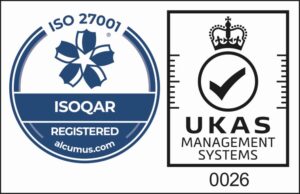Cybercriminals are becoming more sophisticated, exploiting unpatched systems, outdated applications, and misconfigured devices to gain unauthorized access to sensitive data. The solution? A proactive and continuous vulnerability management program.
At NVOY Technologies, we help businesses strengthen their IT security posture through a structured approach to vulnerability assessment, patch management, and vulnerability remediation — ensuring your systems remain protected against known and emerging threats.
What Is Vulnerability Management?
Vulnerability management is the ongoing process of identifying, evaluating, prioritizing, and mitigating security weaknesses across your IT environment. This includes servers, endpoints, networks, cloud services, and applications. Effective vulnerability management helps organizations stay ahead of attackers by systematically addressing security gaps before they can be exploited.
The key stages of a comprehensive vulnerability management program include:
-
Vulnerability Assessment
The process starts with regularly scheduled vulnerability assessments, which scan your IT assets to identify known vulnerabilities. This includes missing security patches, outdated software versions, weak configurations, and known software flaws that attackers often target. -
Risk Prioritization
Not all vulnerabilities pose the same level of risk. Once vulnerabilities are discovered, they are prioritized based on factors such as severity, exploitability, and business impact. This allows IT teams to focus resources on the most critical threats first. -
Patch Management
Timely and efficient patch management is essential for closing security gaps. Vendors regularly release patches and security updates to address newly discovered vulnerabilities. Automating this process helps ensure that critical patches are deployed quickly across all devices and systems. -
Vulnerability Remediation
Beyond patching, some vulnerabilities require configuration changes, access control adjustments, or compensating controls to fully mitigate risk. Vulnerability remediation ensures that each identified weakness is addressed using the most appropriate method, reducing overall exposure. -
Continuous Monitoring
As new vulnerabilities emerge daily, continuous monitoring is essential to maintain a strong security posture. A robust vulnerability management program integrates real-time monitoring and regular reassessments to stay current.
Why Vulnerability Management Matters More Than Ever
According to recent data from the National Institute of Standards and Technology (NIST), over 25,000 new vulnerabilities were catalogued in 2023 alone — a record-breaking number. Each unpatched vulnerability represents a potential entry point for attackers, highlighting the critical importance of proactive management.
Furthermore, research by IBM Security shows that vulnerabilities in third-party software and unpatched systems remain leading causes of data breaches, often resulting in significant financial and reputational damage.
Without a structured vulnerability management program, businesses face:
-
Increased risk of ransomware attacks
-
Data breaches and regulatory penalties
-
Downtime and operational disruption
-
Loss of customer trust and brand reputation
NVOY’s Approach to Vulnerability Management
At NVOY Technologies, we integrate vulnerability assessment, patch management, and vulnerability remediation into our comprehensive managed IT security services. Our approach includes:
-
Continuous scanning and monitoring of client environments
-
Prioritized reporting to focus on the most critical vulnerabilities
-
Automated patch deployment across all supported devices
-
Expert-led remediation planning and execution
-
Ongoing compliance and risk reporting for audit readiness
By combining advanced tools, experienced security professionals, and proactive management, we help businesses minimize their attack surface and maintain operational resilience.
Build Resilience with Proactive Security
Vulnerability management is not a one-time event — it’s an ongoing discipline that protects your business from evolving threats. With NVOY’s managed security services, you gain peace of mind knowing that your IT environment is continuously monitored, secured, and optimized.
If you’re ready to strengthen your security posture and take control of your vulnerabilities, contact NVOY Technologies to learn how we can help.













